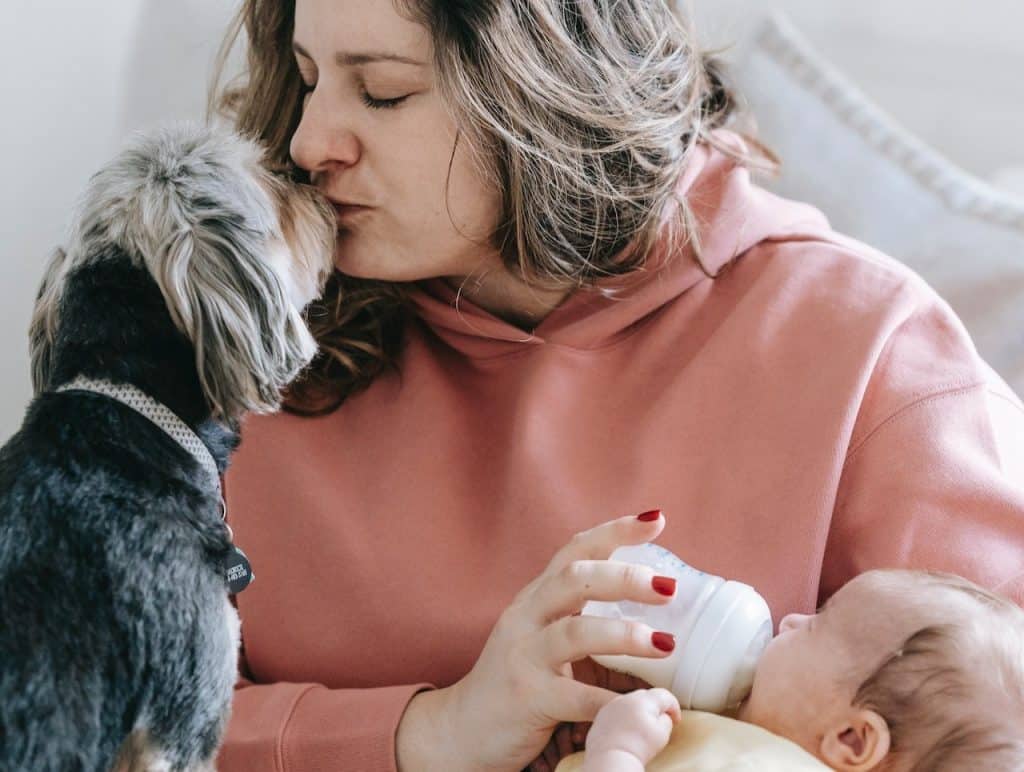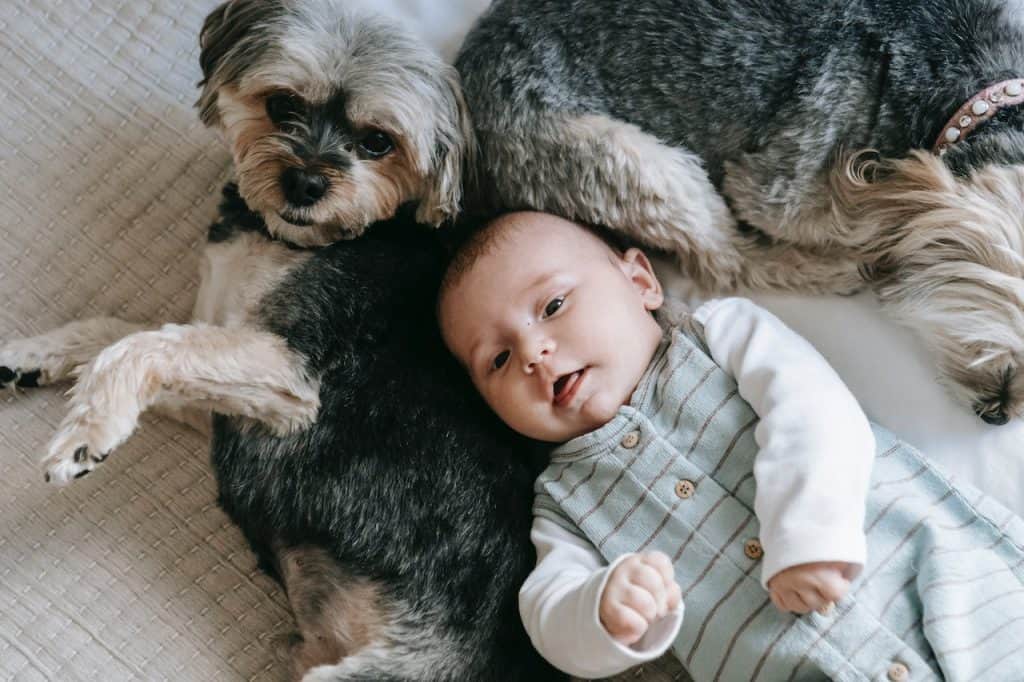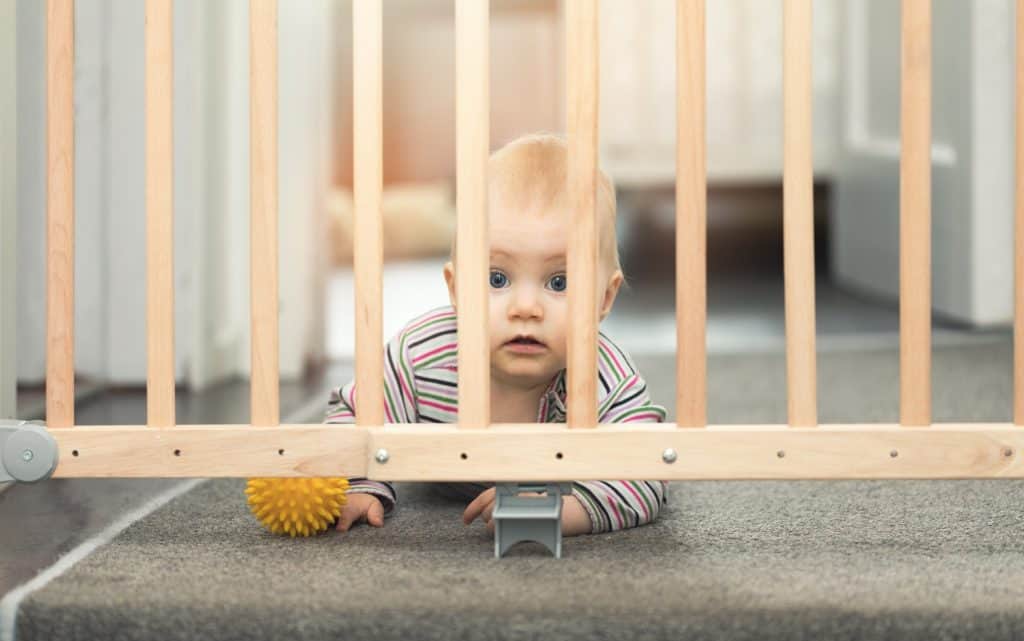The arrival of a new baby in the family brings an array of emotions, from joy and excitement to stress and anxiety. As parents, we eagerly anticipate the blossoming bond between our child and their furry sibling. However, when our beloved dog starts growling at the baby, our hearts sink, and we’re left grappling with a challenging situation.
To address this issue, consider early socialization, setting boundaries, and reinforcing positive behavior. Remember to always prioritize safety by supervising interactions and creating separate safe spaces for both your dog and baby. With patience and empathy, you can foster a nurturing bond between your furry companion and your little one.
In this article, we’ll discuss the reasons behind your dog’s behavior and explore effective strategies to create a harmonious coexistence between your canine companion and bundle of joy.
Common Reasons for Dog Growling at the Baby
Fear
Dogs may growl at babies because they feel afraid or uncertain about the new addition to the family. Babies have unique movements, sounds, and smells that your dog may not have encountered before. It’s essential to understand that your dog’s growling is a way of communicating its discomfort.
Jealousy

In some cases, dogs may feel envious of a new baby, particularly if they previously enjoyed being the center of attention. This jealousy might manifest as growling or other undesirable behaviors, demanding your attention and intervention.
Possessiveness
When a dog exhibits possessiveness towards its toys, food, or territory, they may growl as the baby approaches their prized possessions. Such conduct signals that the dog feels threatened by the baby’s presence.
Preventive Measures
Early Socialization

To help prevent growling, it may be helpful to socialize your dog with children early on. Exposure to children can help your dog learn that they are not a threat and can be a part of their environment.
Set Boundaries
Establishing clear boundaries for your dog is essential in preventing unwanted behaviors. Employ commands like “leave it” or “stay” to teach your dog to respect the baby’s space and maintain a safe distance.
Reinforce Positive Behavior
Reward your dog with praise, treats, or playtime when they display calm and friendly behavior around the baby. Positive reinforcement encourages your dog to continue behaving well in the baby’s presence.
Tips for a Safe Environment
Supervise Interactions
It’s imperative never to leave your dog and baby unsupervised. Make sure to keep a watchful eye on their interactions to guarantee the safety and well-being of both parties.
Create a Safe Space for Both
Create dedicated safe havens for your dog and baby within your home. These refuges offer your dog a comforting retreat and grant your baby a secure zone for exploration, free from unwarranted canine encounters.
Use Baby Gates and Playpens

Baby gates and playpens can be helpful in keeping your dog and baby separate when needed. These barriers provide a physical space for each to enjoy without the risk of accidental encounters.
How to Deal with Dog that Growls at Baby
Keep Your Cool
When your dog growls at your baby, it’s essential to remain calm. Reacting with anger or frustration may amplify your dog’s stress levels and exacerbate the situation.
Identify the Trigger
Pay attention to what might be causing your dog to growl. Is it a specific sound or movement from the baby? Is the baby too close to the dog’s toys or food? Identifying the trigger can help you understand and address the issue.
Consult a Professional
Should the growling persist or intensify, seeking the advice of a professional dog trainer or behaviorist is highly advisable. They’ll help you uncover the root of the problem and devise tailored solutions for your unique circumstances.
Final Thoughts
Navigating the complexities of a dog growling at a baby can be daunting and taxing. Understanding the reasons behind the growls and implementing preventive actions pave the way for a secure and harmonious family atmosphere.
Remember to keep a vigilant eye on your dog and baby’s interactions, establish dedicated safe zones, and seek professional advice when necessary. Armed with patience, consistency, and empathy, you’ll guide your dog through this transitional period, nurturing a loving bond between your cherished pet and your precious baby.